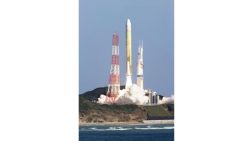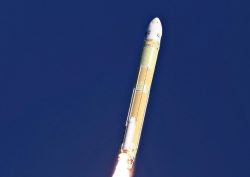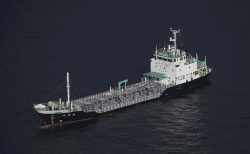17:27 JST, November 6, 2024
ELCHE, Spain (Reuters) — Spanish start-up PLD Space, which carried out Europe’s first fully private rocket launch last year, aims to one day be able to carry any type of cargo and ultimately humans into space, rivaling big players such as Elon Musk’s SpaceX.
Plans by companies around the world to deploy thousands of internet-beaming satellites in the next few years have spawned a wave of new rocket companies targeting what some analysts expect will be a trillion-dollar space market by 2030.
Executive President Ezequiel Sanchez told Reuters on the sidelines of a company event called “Beyond” that the launch of small orbital satellites with a new rocket after 2026 would mark the start of PLD’s commercial activities, before it created a family of heavier launchers in the next decade.
“Our goal is to launch any type of cargo that the market may require … that includes the possibility of transportation of humans,” Sanchez said.
After the successful suborbital flight of its Miura-1 rocket, named after a breed of bulls used in bullfighting, PLD is now working on its Miura-5 full orbital launcher, which it will test in 2025 and 2026 with two launches from French Guiana.
“Within the flight configuration that we already have for Miura-5, we can develop tests aimed at the evolution of the technologies for the rest of the launchers,” Sanchez said.
Founded in 2011 and based in the eastern city of Elche, the heartland of Spain’s footwear industry, PLD aims to sign binding contracts for the Miura-5 launches after receiving interest from clients for deals worth about €600 million ($657.96 million).
With 70 employees set to be added to the company’s 250 headcount by year-end, PLD recently unveiled a 12,000-square meter facility for Miura-5 development, with plans for a six-fold expansion of its industrial capacity in the next four years.
“We want to be competing globally with the most important players out there,” Sanchez added.
Top Articles in Science & Nature
-

Japan Institute to Use Domestic Commercial Optical Lattice Clock to Set Japan Standard Time
-

Space Mission Demonstrates Importance of International Cooperation, Astronaut Kimiya Yui Says
-

Japan to Face Shortfall of 3.39 Million Workers in AI, Robotics in 2040; Clerical Workers Seen to Be in Surplus
-

Record 700 Startups to Gather at SusHi Tech Tokyo in April; Event Will Center on Themes Like Artificial Intelligence and Robotics
JN ACCESS RANKING
-

Japan Institute to Use Domestic Commercial Optical Lattice Clock to Set Japan Standard Time
-

Israeli Ambassador to Japan Speaks about Japan’s Role in the Reconstruction of Gaza
-

Man Infected with Measles May Have Come in Contact with Many People in Tokyo, Went to Store, Restaurant Around When Symptoms Emerged
-

Prudential Life Insurance Plans to Fully Compensate for Damages Caused by Fraudulent Actions Without Waiting for Third-Party Committee Review
-

Woman with Measles Visited Hospital in Tokyo Multiple Times Before Being Diagnosed with Disease























